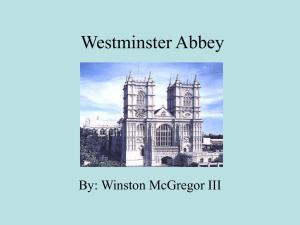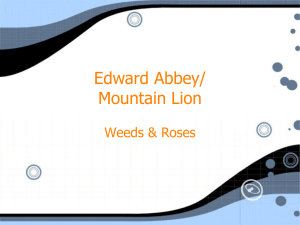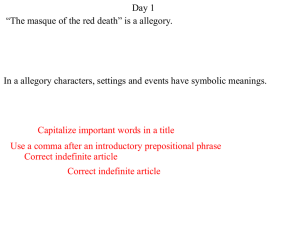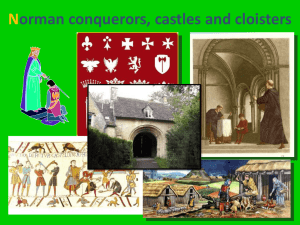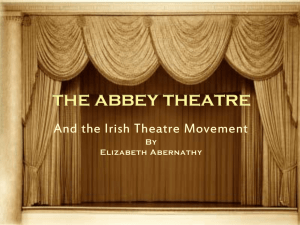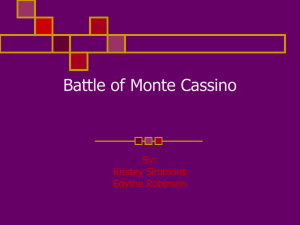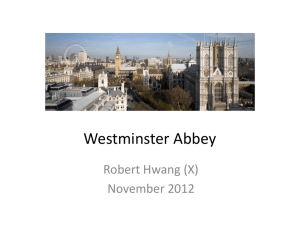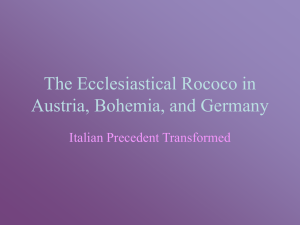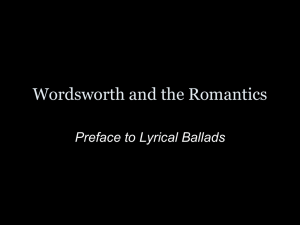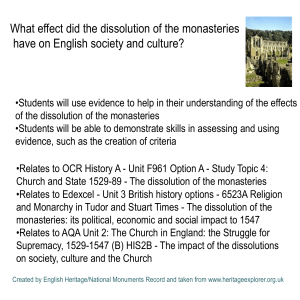Abbey W&R - Ms. Kitchens` Corner
advertisement
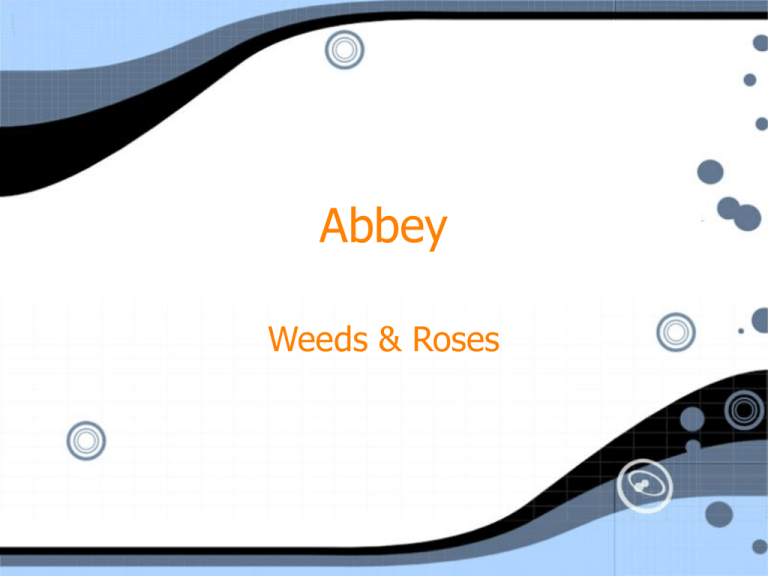
Abbey Weeds & Roses Roses! • Hooray! We’re analyzing • Using details from the text: place, author’s name, text title • Mention of transcendentalism • Use of 90/90 terms (anecdote, jargon, allusion, flashback) • Introductions had many little rose buds in bloom! Rose: Introductions • Most introductions fulfilled all the SOAPStone requirements and did so in a smooth, organized way. • Work on adding voice and not making it sound like you’re completing a SOAPSTone checklist (though you are…ish.) • Remember: A sloppy intro suggests a sloppy paper. Some Rosy Introductions • “Apavaipa Canyon inspired Edward Abbey to write “Down the River” because of his wonder and amazement at its complexity. This New Mexican canyon serves to display Abbey’s beliefs that the earth is so vast and complex, it will never be wholly understood. Abbey appreciates nature and is fascinated with every minute detail, which he conveys using an anecdote, scientific description, and allusions with famous philosophers.” • What’s good about this intro? • Where could this student work? Rosy Intros cont… • “In a world where time rules every aspect of our lives, the beauty and isolation of nature can have healing powers undisturbed by the hectic and stressful environment of the modern world, nature, if left in peace, simply continues on in a never-ending cycle. We often become so caught up that we forget to look around at the beauty that surrounds us. Many of us will often find a place that allows us to rediscover the soothing calm of nature. For Edward Abbey, this place is the Aravaipa canyon in New Mexico. In this piece, Down the River, Abbey attempts to convey his feelings of awe towards the vast expanse of nature.” Rosey Intros! • “Nature has always been a source of inspiration to people. It is worshipped by many religions, the base of early societies and as reflected in this passage, a spark for philosophical thought. In the passage from Down the River, Edward Abbey uses anecdotes, figurative descriptions, and philosophical references in order to emphasize to the reader that nature is a wonderous and beautiful thing.” Weed #1--Read for specifics! • Several people addressed Abbey as “she”… • Why is this a problem? • Read the text--all of it!! • This is not a Ms. Kitchens Conroy passage! Weed #2--Go deeper; answer how/why? “This ‘mutual curiosity’ between him and the lion causes one to take wonder in nature’s ways and maybe also find it mysterious.” “When Abbey describes how the lion ‘melted away,’ he portrays the elegance of a vicious creature. He portrays this image in order to show the audience how to recognize that even when nature may seem intimidating, elegance and fascination may always be found.” Weed #2--Go deeper; answer how/why? “She does this by choosing words such as glimpsed, twilight, gloom and the phrase ‘melted away.’ These words create a magical scene in the reader’s mind.” • How can you go deeper here? Suggestion #1: Organization • For a single passage prompt, consider organizing your writing according to the shifts in the passage. • Look at what nice transitions can be written using this technique: Organization (around shifts) “A shift occurs in the second paragraph from the past to the present, to once again reinforce a reputation of having experienced beauty…” “The almost philosophical close to Abbey’s passage…” “In the second half of Abbey’s passage, he changes tones…” “Near the end of the passage, Abbey broadens his views from a simple situation with a mountain lion in the beginning to an overall and extensive view on the world and its existence.” Possible shifts • • • • • • Time (past, present, future) Tone Narration Diction Perspective (broad to narrow or vice versa) Others? Suggestion 2: Keep working on voice Find--and use--your voice! When AP Graders are reading, they’ve heard 1,000 sentences just like this: • “Abbey reveres nature and doesn’t hesitate to stare into the eyes of a mountain lion.” • Imagine how you would tell your mom about this incident--excited, engaged, etc. • “Nature comes alive for Abbey as he identifies tracks and comes face to face with a mountain lion; while most would bolt from the beast, Abbey is not afraid, instead he looks at the lion with “mutual curiosity.” Examples of Voice “For example, Abbey describes the setting of his encounter with a mountain lion as “twilight.” The reader now understands the rather mystical nature of the occasion. Also, Abbey says, rather than just leaving, that the lion “melted away.” Although the audience knows that the mountain lion did not actually turn into a liquid and disappear, this figurative diction paints a perfect picture of the huge cat slithering away into the boulders that it calls home. Before even getting to any real commentary by Abbey, the reader can understand how mystical his view of nature is.” Examples of Voice “Within the cold winter day that seems to have infinite time, a quick sprint to see the stars and even the awareness of animal life in a seemingly lifeless desert, humbles any man big enough to see its beauty.” How to Work It To encourage voice, try • • • • • • Similes/metaphors Alliteration Anecdotes Find verbs with ZEST!! Active, meaningful verbs Take a risk! Any literary device you can work in • Don’t be cheesy or over the top--remember, you have to have credibility, but you want to have your voice heard! Your turn • By using the words “heart-shaped tracks” it’s obvious he has a magical connection with nature. • Make this MUCH better. Use voice! SAY SOMETHING! Two sentences of CM! Again… • Abbey alludes to Thoreau and Fuller to show his appreciation for nature. • Make this better. It doesn’t prove ANYTHING!! Make it make sense and AP! Okay…one last time • Talk about the last paragraph. • What does it mean? • WHY would Abbey include it? How does it help to convey his ATTITUDE. • Add voice! Don’t just write something, have something to say. Roses! Here’s the scores • Period 3 • • • • • • • • 9 8 7 6 5 4 3 2 0 1 2 7 16 5 2 1 • Period 6 • • • • • • • • 9 8 7 6 5 4 3 2 0 0 3 8 12 5 4 0

